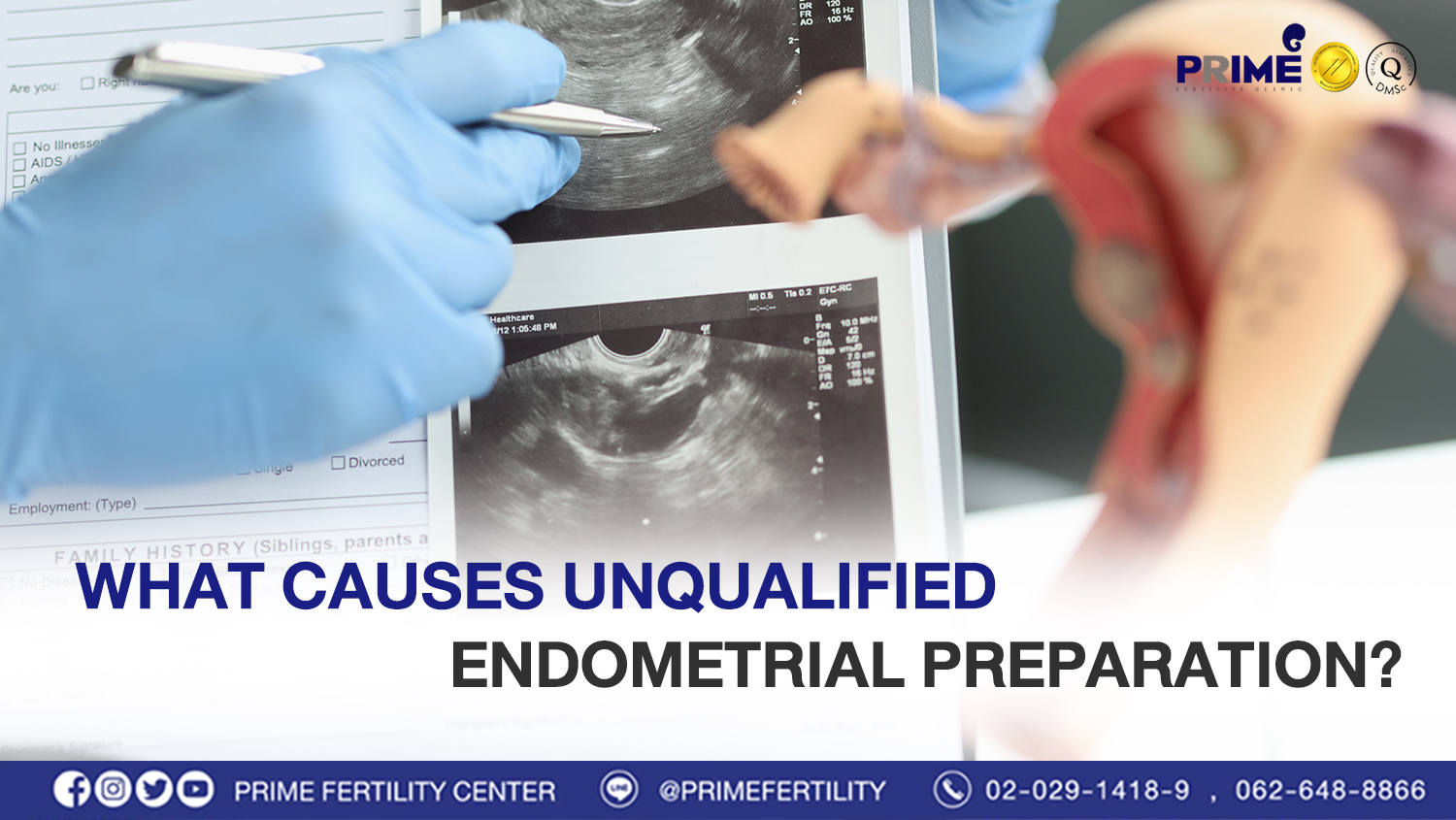Endometrium plays a significant role in embryo implantation and pregnancy. If the endometrium is ready enough, the chance of successful embryo implantation rate can increase. So can the pregnancy rate.
For a patient who has failed endometrial preparations and has to proceed the procedure many times, this might happen because of several reasons. What are the major reasons? Let’s see.
- A patient does not respond to the medication. In this case, it depends on the treatment plan whether there is a continuous monitoring or medication adjustment.
- A Polyp or adhesion is found and obstructs the embryo implantation. It can be solved by h
- A patient’s uterus might be damaged. For example, the patient might has gone through so many curettages that the endometrium became unready for the implantation.
- A patient has consumed some substances that are similar to a kind of hormone called Phytoestrogen such as, soybean milk, soybean, or coconut juice. These substances can cause mixed echoic pattern or abnormal growth of endometrium.
So, we suggest you consult with medical specialists to find the best treatment.
Reference: Prime Fertility Center Co., Ltd.
If you’re interested in our ICSI program, kindly find more details as below website: www.primefertilitycenter.com/en/package-promotion-4/foreign-couple-package-2021-2/foreign-couple-package-2021/
ICSI (Intracytoplasmic Sperm Injection) is an in vitro fertilization procedure with the laboratory technology. Both IVF and ICSI are comprising of similar procedures. But the difference is how sperm will fertilize an egg. In ICSI program, only one best sperm cell will be selected then injected directly into a fully matured egg. Patients will be prescribed some hormonal medications. Stimulating ovaries to produce several eggs. ICSI can make a pleasant fertilization rate. As well as reduces some fertilization problems or abnormalities caused from egg and sperm. For examples: multiple sperm fertilize an egg, sperm cannot penetrate the egg. The combined egg will transform to be an embryo after fertilization. Next, the embryo will be raised and will grow up among the appropriate environment inside a laboratory. Finally, the embryo will be transferred to the uterine cavity in order to implant then develop to be the fetus later on.
Couples who should receive the infertility treatment with ICSI program:
– Female’s age more than 35 years
– Stenosis for both sides of the fallopian tube
– Severe Endometriosis
– Estrogen dysfunction for examples: Chronic Anovulation, PCOS (Polycystic Ovary Syndrome)
– Severe sperm abnormalities including sperm morphological defect, low sperm count, poor sperm motility
– Male who is sterile or had a vasectomy but the body can still produce sperm. To extract sperm under this limitation, a surgical procedure will be performed such as PESA, TESA, TESE.
– Couples who have failed from every previous IVF cycle
– Couples who prefer to screen the embryo’s genetic diseases
FROZEN EMBRYO TRANSFER (FET)
Frozen Embryo Transfer (FET) is the process of embryo transplantation into the uterus after thawing frozen embryo. The patient can choose the FET date by convenient time e.g. 1-2 months after the oocyte collection date. The evidence supports FET in women more than 35 years of age are providing more pregnancy rates than FRESH embryo transfer.
Due to the inducing medication that the female takes to develop multiple of healthy ova, the huge amount of hormones generated will weaken endometrium, consequently lessening the success rate of the transfer regardless of the perfect condition of embryos. Given the circumstance, FET may not be an effective protocol.
However, a number of research institutes find that FET offers better and higher chance of pregnancy because endometrial tissue is in more proper state for embryos. Therefore, the doctor will have to decide which protocol fits best for each couple.

